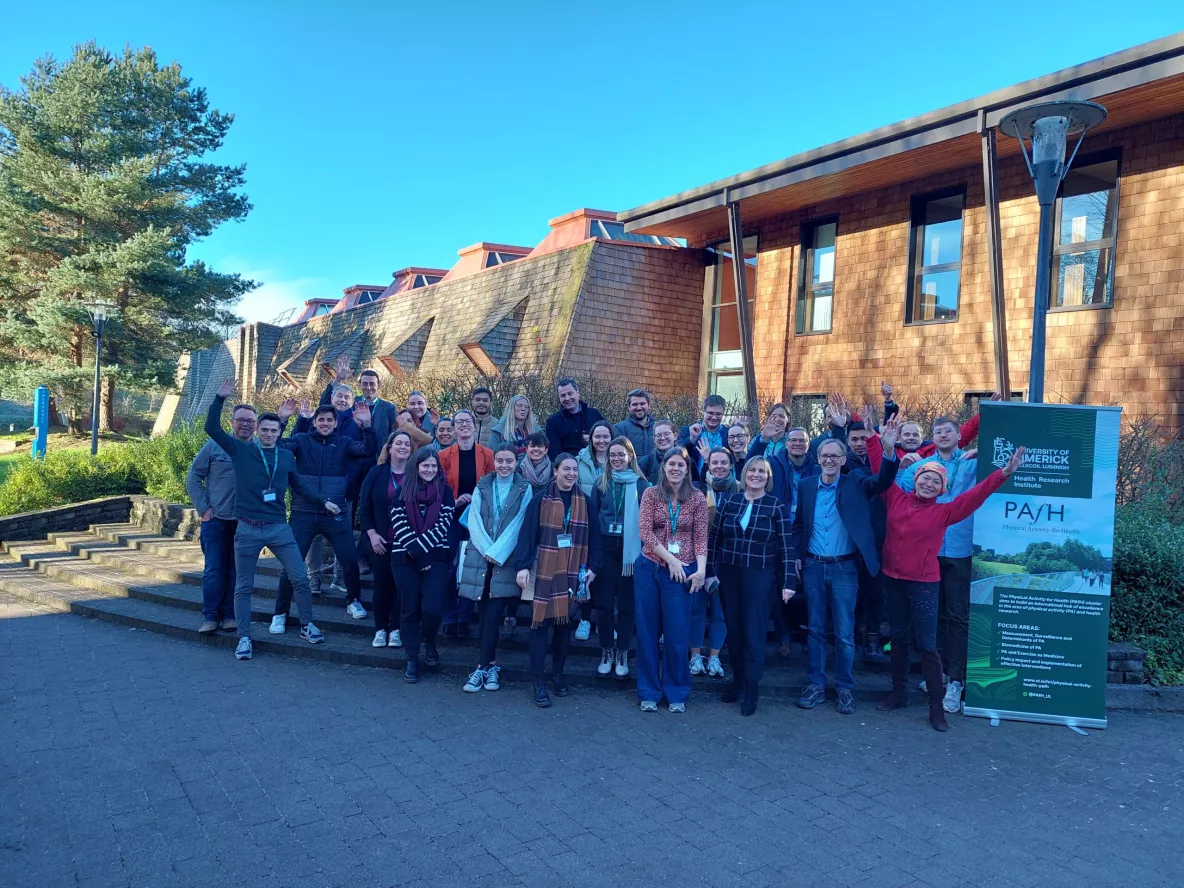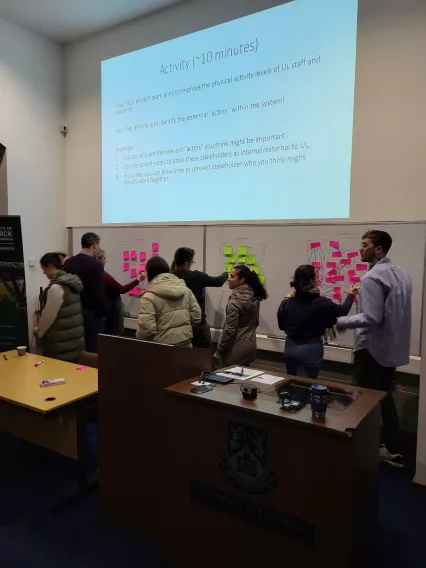
Last week saw the second Physical Activity for Health (PAfH) training school, and the first winter school, hosted and facilitated by the PAfH research cluster.
The training course, titled “Physical Activity Policy and Intervention Evaluation Training Course” had a large breadth of content. On day 1 topics such as physical activity intervention design; intervention implementation; evaluation of intervention implementation; public and patient involvement and lived examples of applied practice were provided by the invited speakers.
On day two, the focus moved to policy with seminars, presentations and panel discussions on physical activity policy science; policy evaluation; system’s approach to policy implementation and evaluation with hands on experience with tools to review policy implementation and evaluation by the creators and/or experienced users. There was also plenty of time for discussion and knowledge sharing on how to shape a more active society.
The PAfH winter school or “Physical Activity Policy and Intervention Evaluation Training Course” also had many opportunities to network and meet with the invited speakers and PAfH research cluster core members, both in dedicated and scheduled 1-1 consultation sessions and informally during breaks, lunches and the keynote dinner. Two of the international speakers were (1) Prof Michael Pratt (Fulbright Distinguished Chair 2022/2023, Palacky University, Czech Republic) and (2) Dr Peter Gelius (FAU Friedrich-Alexander-Universität).
This was a unique opportunity for early career researchers to meet with more established researchers and world-class leaders in their field, which is often an opportunity not found at larger conferences due to the sheer number of attendees and the program schedule that typically has numerous symposiums held at the same time across the conference venue.
This Physical Activity for Health training school felt more intimate which I can tell was by design to foster and facilitate discussions between early career researchers and established researchers and I am sure many connections and future research will appear from this training school.
Some personal highlights that I have taken away as an early career researcher were;
- The use of a systems approach to acknowledge the complexity of a behaviour and its multiple influences and how to map and define the scope of the system, which, the system mapping process, when done with relevant stakeholders and end-users can create ownership.
- A reminder that for those for who the research is about and whom should benefit from the research (end-users), should be at the heart of the research.
- That “Getting in the Room” is an important step to implementation and scaling an intervention and/or policy and that you do not know when that opportunity will arise, but you need to be ready to “jump through the window” when it does.
Finally, you can see from the photos below, how the winter school was made interactive and how underlined through the training school and the impactful content was networking. Thank you PAfH and the invited speakers.
Aidan Buffey is a PhD student in the Department of Physical Education and Sport Sciences, UL. He is funded by a Health Research Institute (HRI) PhD Studentship and supervised by Professor Alan Donnelly and Dr Brian Carson. Aidan is in the fourth year of his PhD project titled ‘Design and evaluation of an intervention to reduce sedentary behaviour and improve health in older adults’.
This project aims to implement an office-based intervention designed to interrupt sedentary behaviour with light-intensity physical activity with an emphasis on improving cardiometabolic health markers. Aidan has an MSc in Sport and Exercise Science – Physiology (Manchester Metropolitan University, 2018-2019) and a BSc (Hons) Sport and Exercise Science (Manchester Metropolitan University, 2015-2018).
